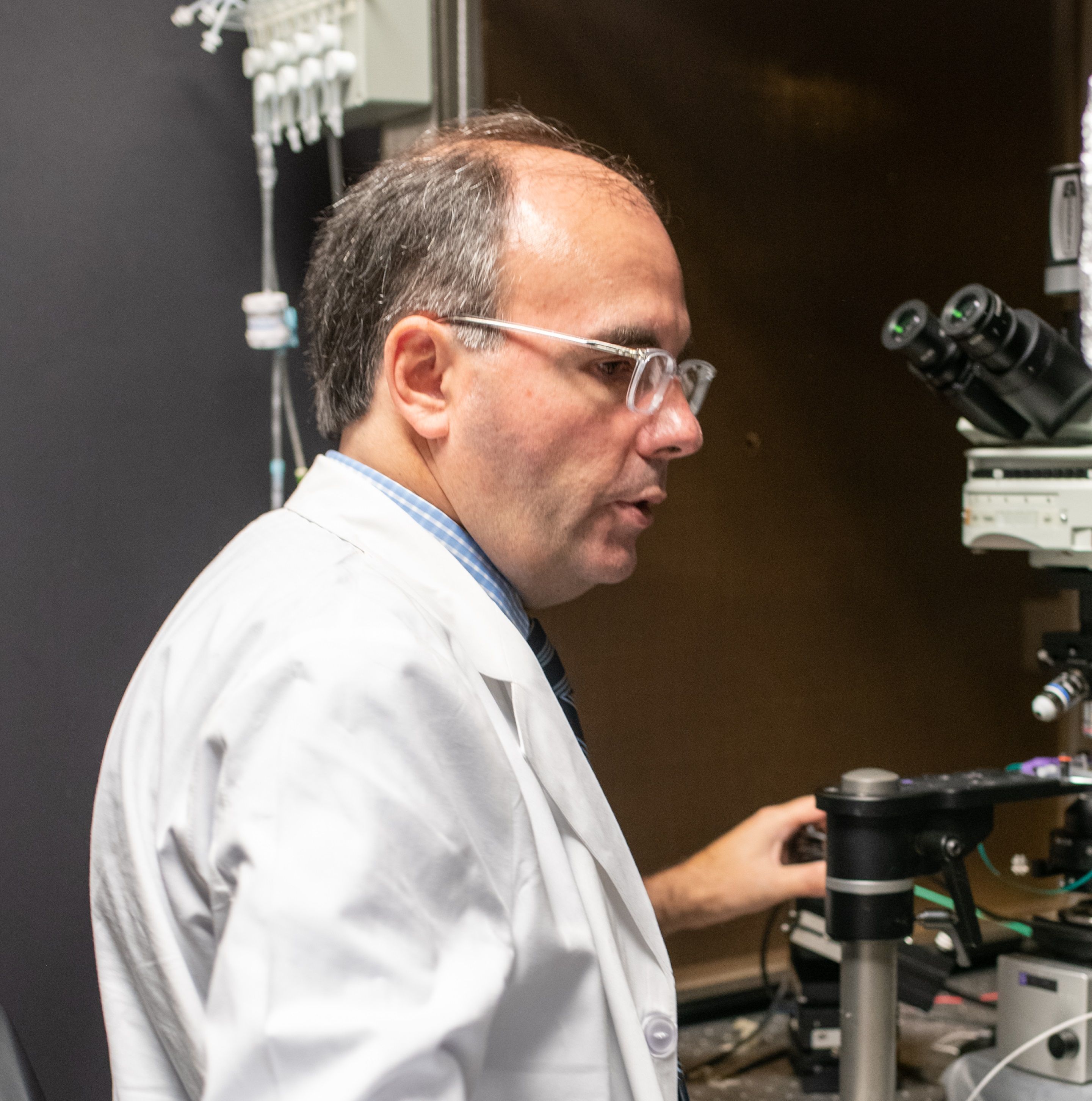Message from the Chief

Research is unusually robust in our division of child neurology, which significantly contributes to and benefits from the renowned collaborativeenvironment of Weill Cornell Medicine. In fact, we are an essential part of the research enterprise of Weill Cornell Medicine and NewYork-Presbyterian Hospital, which includes the historic New York Hospital, in addition to NewYork-Presbyterian Brooklyn Methodist Hospital and NewYork-Presbyterian Queens, Burke Neurological Institute, Memorial Sloan Kettering Cancer Center, Hospital for Special Surgery, Rockefeller University, and Cornell University in Ithaca. We are among the leading research child neurology teams in the United States and among the - if not the - leading divisions of child neurology in New York in terms of per-capita research funding from the National Institutes of Health.
Taking epilepsy as the best example, we have faculty and trainees conducting research at 3 accredited epilepsy monitoring units, with clinical trials taking place in all of them. In some, we develop the targeting of gene therapies to be directly administered to the brain, we treat epilepsy using noninvasive focused ultrasound centered on very small brain regions, and we follow through with quantitative rehabilitation and outcomes research so that we can promote a rapid and successful reinsertion of the child into a normal life, a life which, unfortunately too often, many did not get to experience before coming in contact with us. For us, research begins with accelerating pre-linguistic development in the premature newborn and ends with comprehending and anticipating how old age diseases start in childhood.
About one half of our research is brain function and disease-mechanism focused. This spans from studying molecular interactions to brain network phenomena. About the other half of what we do is based on an individual-centered model, whether treating a single person with an unusual disease by developing an entirely new treatment or conducting a large international study to comprehend disease and lifestyle aspects that become apparent only after the analysis of very large data sets. To support this work, we do have a significant research personnel infrastructure, including a superior capacity for model organism generation and characterization, therapeutic development and large data set analysis.
More important, however, is our habit to work as a team to discern which questions are worth pursuing from those which are mere scientific curiosities. One factor that differentiates one type of question from the other is the ability to improve either mankind or a single person in a tangible way. Once the correct question is properly formulated, we spare no resource or effort available in our vast scientific environment. Every aspect of research is conducted by or involves trainees. Our youngest has been 16 years of age and our most senior have been international visiting faculty interested in learning a specific research technique.
We also provide an outstanding scientific formative environment for physician scientists embarking in a research career and offer them significant mentorship and resources to ensure their success. In addition, we strive to influence, at the national level, the development of these careers to their fullest degree and their proper valuation by society.
Juan M. Pascual, MD, PhDChutorian Professor and Chief, Division of Child Neurology
Professor of Pediatrics, Neurology and Neuroscience
Weill Cornell Medicine | NewYork-Presbyterian Hospital
Researchers
Dr. Grinspan’s focuses his research efforts on the analysis of large clinical and administrative datasets to answer the core questions surrounding pediatric epilepsy.
Dr. Kosofsky’s research focuses on improving our ability to diagnose and treat concussion. His team is pioneering the use of objective tests of autonomic dysfunction to identify individuals at risk for ongoing symptoms following mild traumatic brain injury. They are also implementing a telemetry-based individualized graded exercise program downloadable to a subject’s iPhone demonstrated to accelerate recovery following concussion.
Dr. Rajadhyaksha's research revolves around the molecular mechanisms of substance abuse, drug addiction and mood disorders. Her team hopes that a better understanding of the brain at a molecular level will lead to therapeutic strategies for treating addiction and co-occurring mood-related conditions.
The Rajadhyaksha Lab is also interested in understanding how L-type Cav1.2 and Cav1.3 calcium channels contribute to addiction and neuropsychiatric disorders. Their research is carried out using a range of pharmacological and genetic techniques in combination with behavioral assays, with the goal of elucidating the molecular contribution of Cav1.2 and Cav1.3 channels to neuropsychiatric-related endophenotypes. Ultimately, the lab aims to increase our knowledge of complex brain disorders towards the development of novel therapeutics.
Learn more: Rajadhyaksha Lab webpage
Pediatric Concussion & Mild Traumatic Brain Injury (MTBI) Program
Our pediatric concussion and MTBI team is dedicated to raising awareness and pursuing research to improve diagnostics and therapeutics for these widespread injuries.
Learn More: Pediatric Concussion & Mild Traumatic Brain Injury (MTBI) Program
Exercise Therapy as Treatment (ETT) for MTBI
Dr. Barry Kosofsky leads this longitudinal clinical research study testing early initiation of a graded exercise program to accelerate recovery. Dr. Kosofky’s team assesses individuals at risk for long-term deficits to identify those who might need earlier treatment, utilizing sophisticated physiologic measurements during exercise, as well as eye tracking and electrophysiologic assessments (EEG and ERP) to measure neurocognitive performance.
Rare Epilepsies in New York City (RENYC)
Dr. Zachary Grinspan is currently conducting research that utilizes large clinical and administrative datasets to answer core questions for children with epilepsy.
Rare epilepsies are a devastating group of diseases that begin in childhood and are often associated with profound neurologic, medical and psychiatric disabilities. Dr. Grinspan’s team collects electronic physician’s notes from five academic medical centers in New York City to identify cases and understand the essential epidemiology of this vulnerable and medically complex population. The team is also developing an easy-to-share tool to find rare epilepsies through an automated search of clinical notes.

